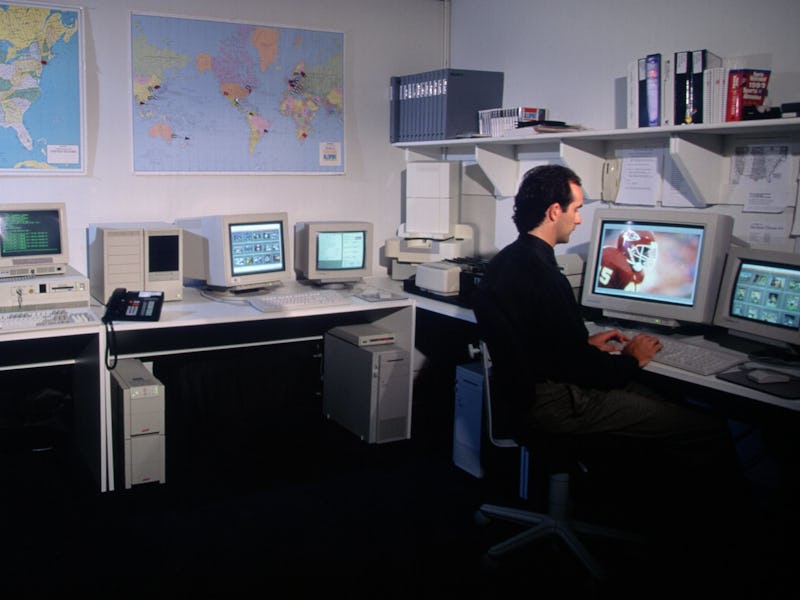One of Internet Freedom's Founding Fathers Looks Back on 20 Years Online
He took to Reddit to talk 2016, censorship, and the future of the web.

Late in the evening on February 8, 1996, John Perry Barlow declared independence for a new territory, free from world governments: cyberspace.
“Governments of the Industrial World, you weary giants of flesh and steel, I come from Cyberspace, the new home of Mind. On behalf of the future, I ask you of the past to leave us alone. You are not welcome among us. You have no sovereignty where we gather,” Barlow wrote in “A Declaration of the Independence of Cyberspace,” a sweeping manifesto of freedom and acceptance for all who wished to participate in the fledgling World Wide Web.
Barlow has been a cattle rancher, songwriter for the Grateful Dead, and the co-founder of the Electronic Frontier Foundation, one of the largest nonprofit organizations focused on protecting civil liberties online. Yesterday, on the 20th anniversary of his original document, Barlow wrote a new post talking about the future of the internet and how relevant the original declaration is today, and took to Reddit for an AMA session.
John Perry Barlow
One of his biggest points is that internet censorship primarily enforces copyright law, instead of pursuing dangerous illegal activity like child pornography.
“Since the desire to share cool stuff is a human impulse just this side of sex, it didn’t seem likely to me that harsh laws, all of them local, were going to keep people from sharing everything from songs to mathematical theorems across Cyberspace,” Barlow wrote in a blog post. “And I could see that the primary tool of censorship was going to be copyright law and not such stalking horses as kiddy porn and terrorism.”
On one of the modern internet’s biggest platforms for sharing cool stuff, redditor SIFTW asked Barlow if he believes in any limits to free speech online.
“I don’t know how to limit speech on the Internet, that’s the issue,” Barlow responded. “I don’t know a way to limit one form of speech, without limiting any form of speech. Besides, as John Stuart Mill said, liberty resides in the rights in that person’s views which you find most odious. And if you can’t defend the expressions that trouble you, you’ll have a hard time defending your own when they trouble someone else.”
Contrary to Reddit’s high opinion of Bernie Sanders, Barlow didn’t think much of Sanders or his opponent Hillary Clinton. When asked if any of the 2016 candidates shared his views on internet freedom, Barlow responded, “No, in a word. I mean, have you heard any of these guys say anything about the Internet? As far as I can tell they don’t even know it exists. I mean, Bernie kind of does. Hillary only does insofar as she made a terrible mistake online.”
Though his AMA didn’t go quite as viral as the original declaration in 1996, it did attract the attention of Edward Snowden.
The original Declaration was a response to President Clinton’s signing of the Communications Decency Law, which gave the Federal Communications Commission permission to censor the internet in the same way they did TV and radio broadcasts.
Barlow now leads the EFF, which works against current bills to limit freedom online, and corporate corruption in cyberspace.
While a lot of Barlow’s dreams for the internet didn’t come true (he admitted not bargaining for Russian mobsters in his vision of a perfect society online), he still stands by the core values of the Declaration.